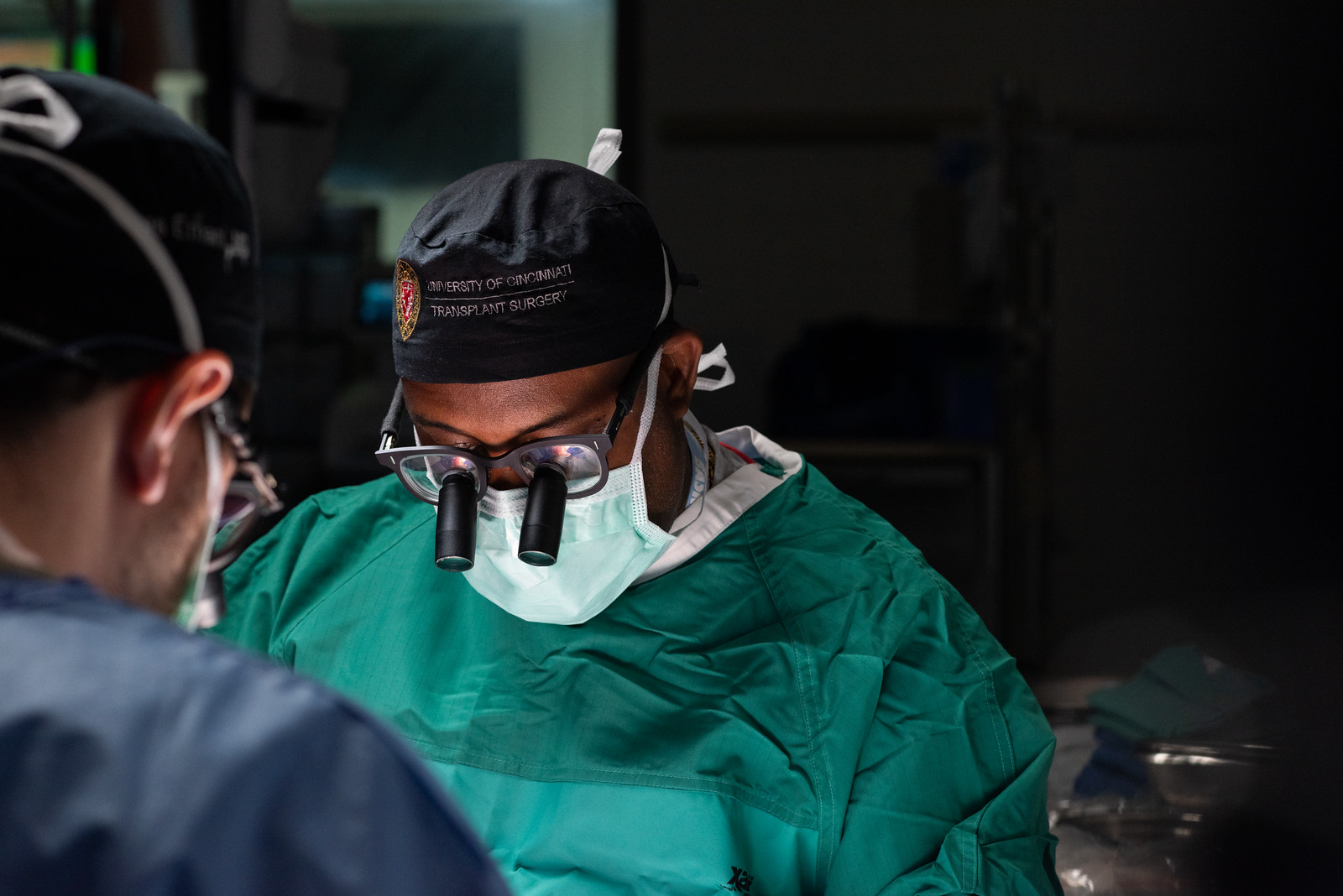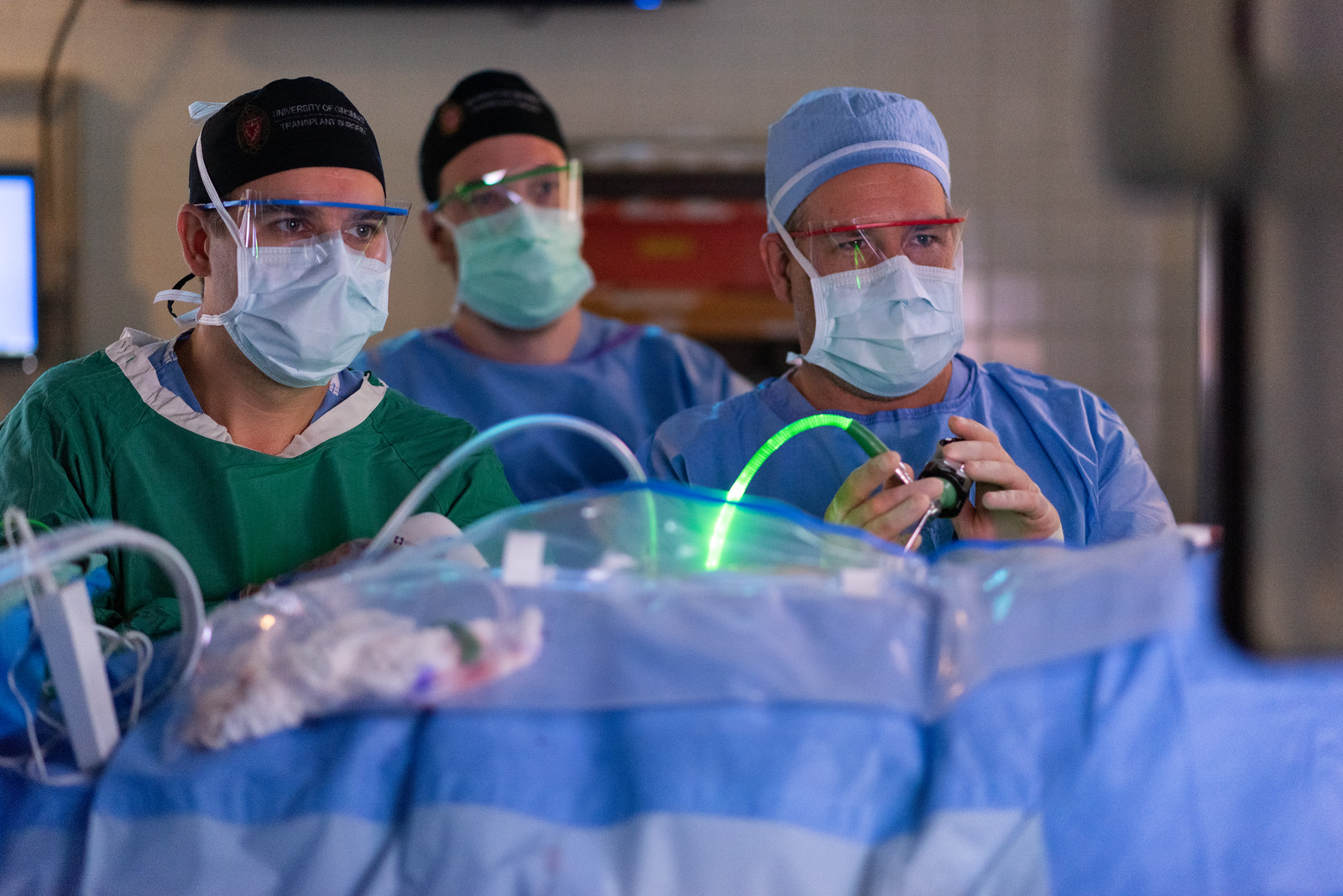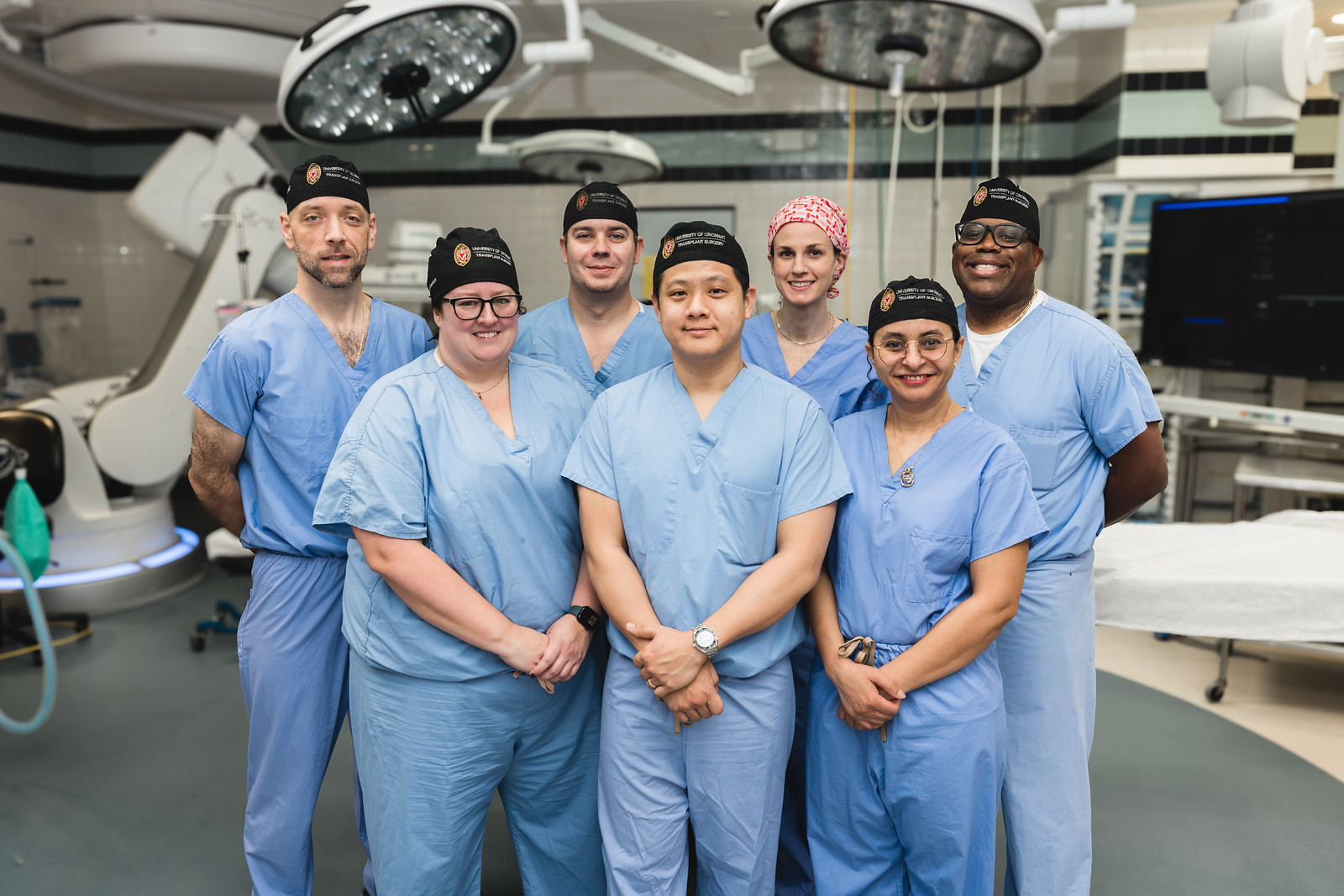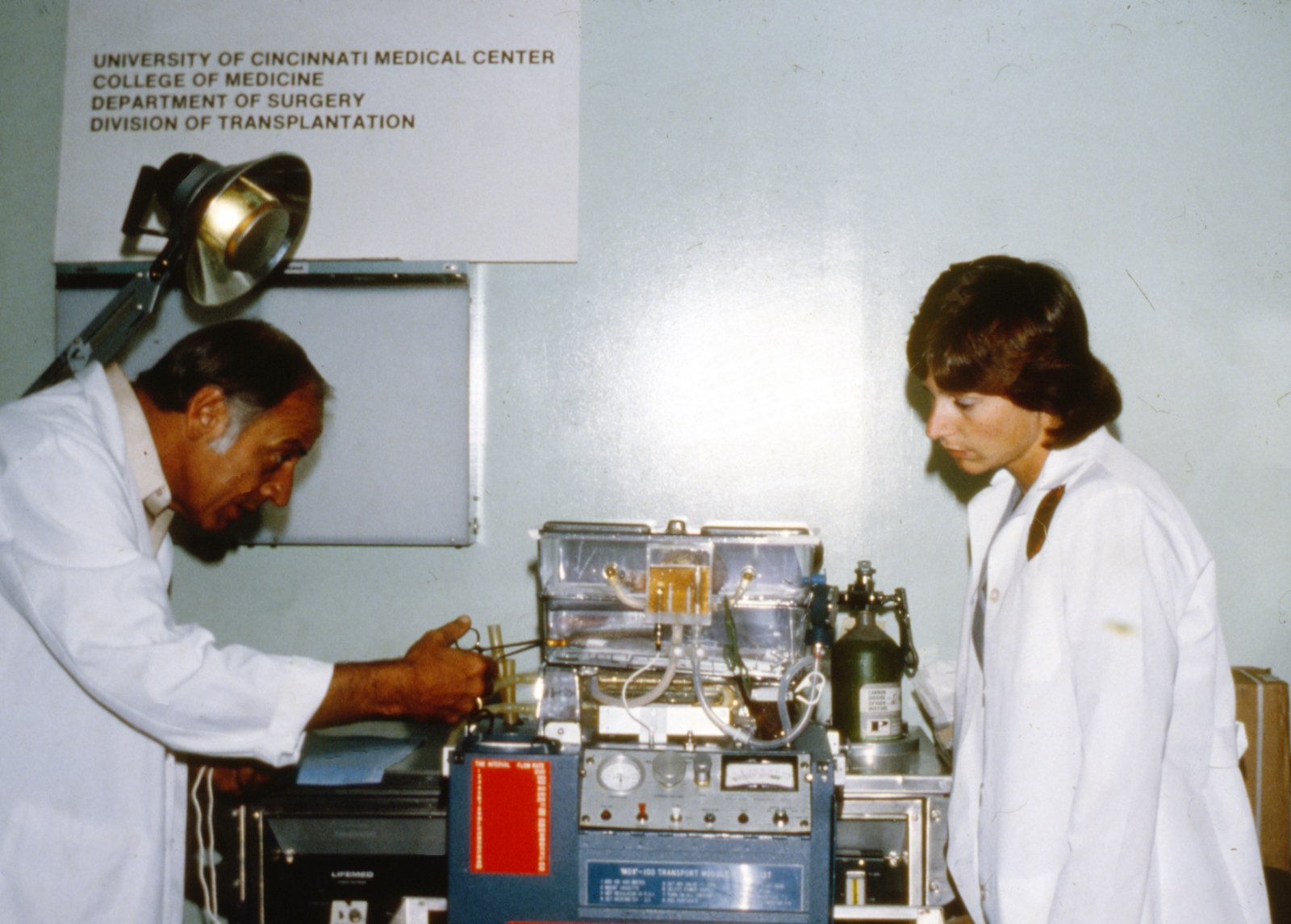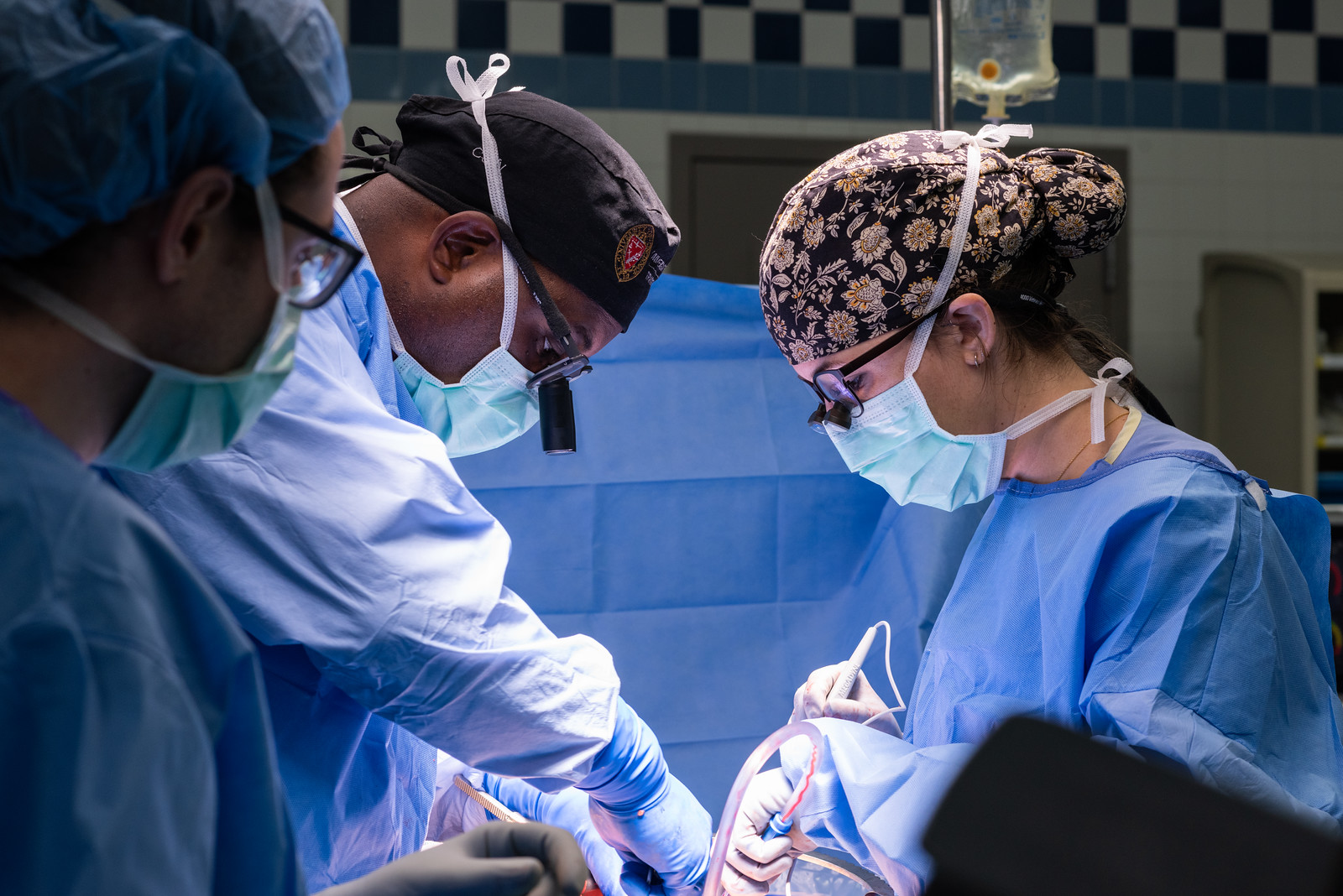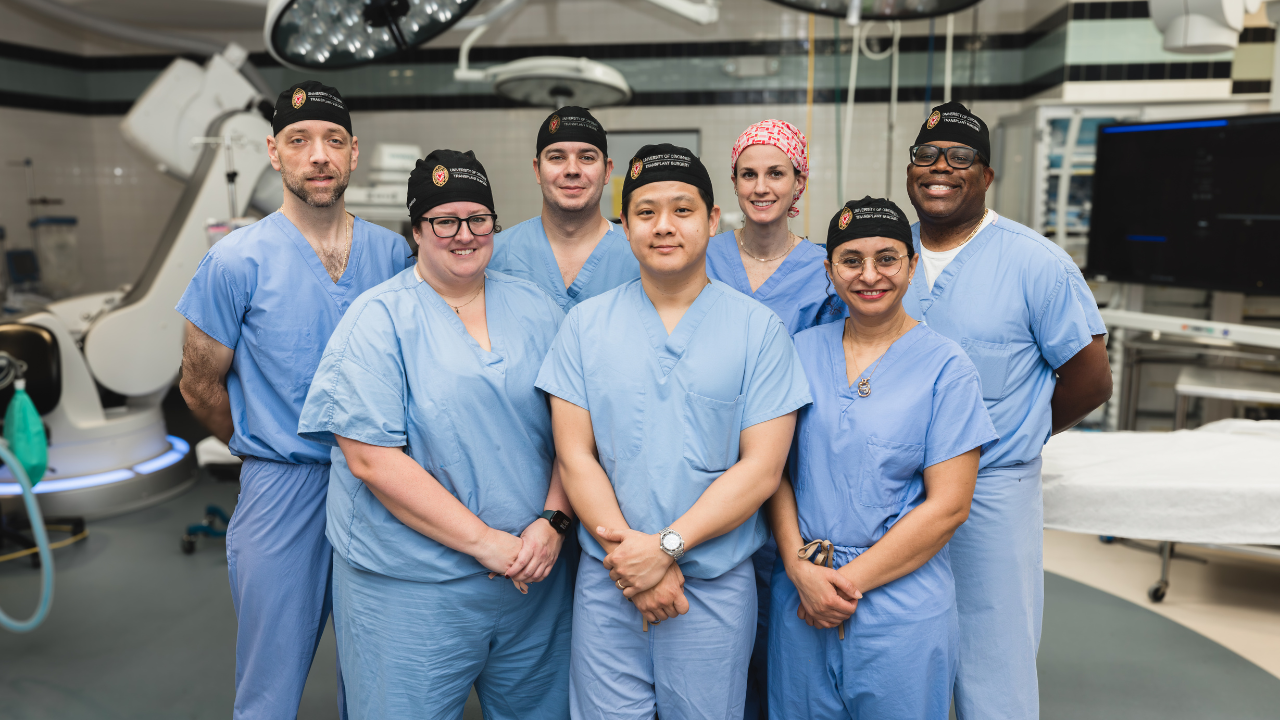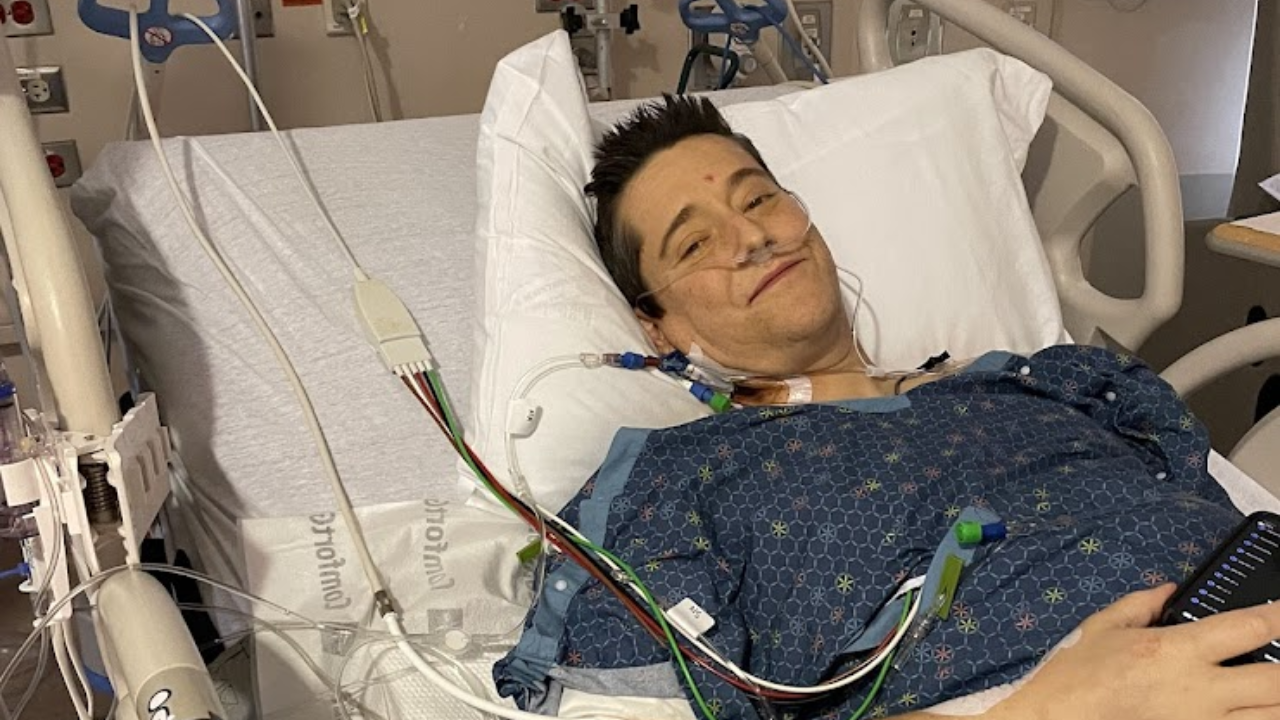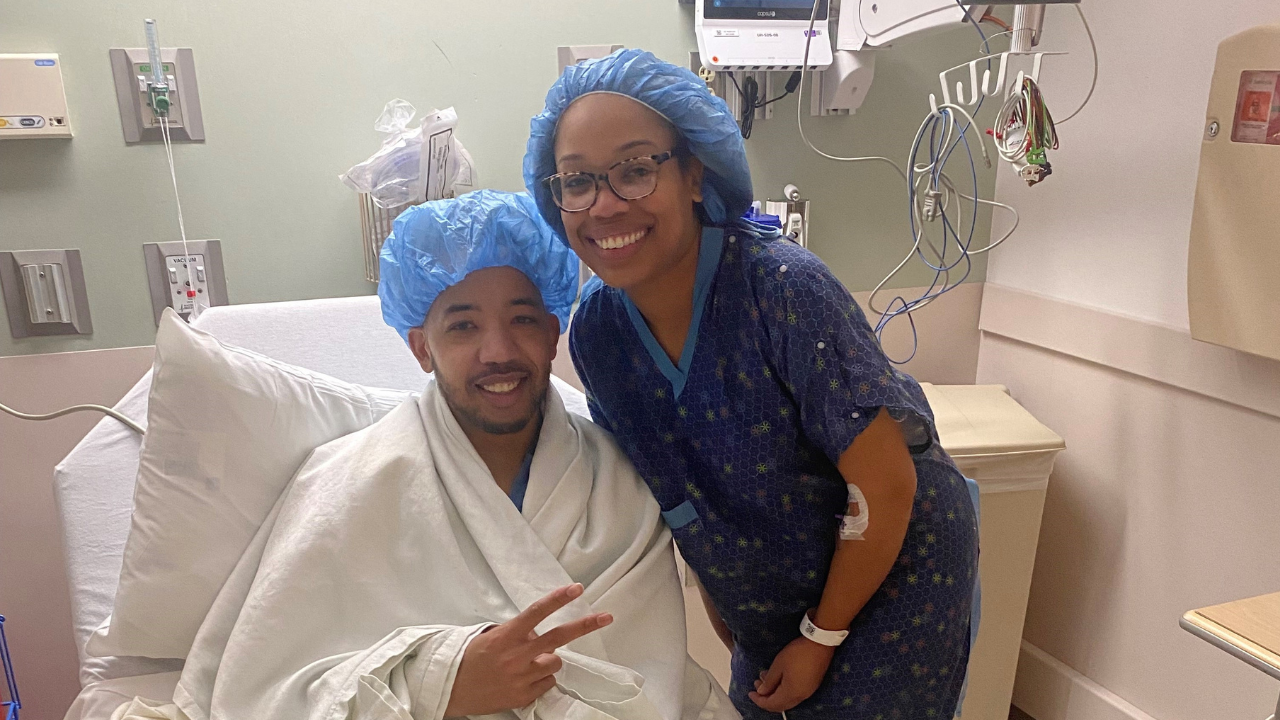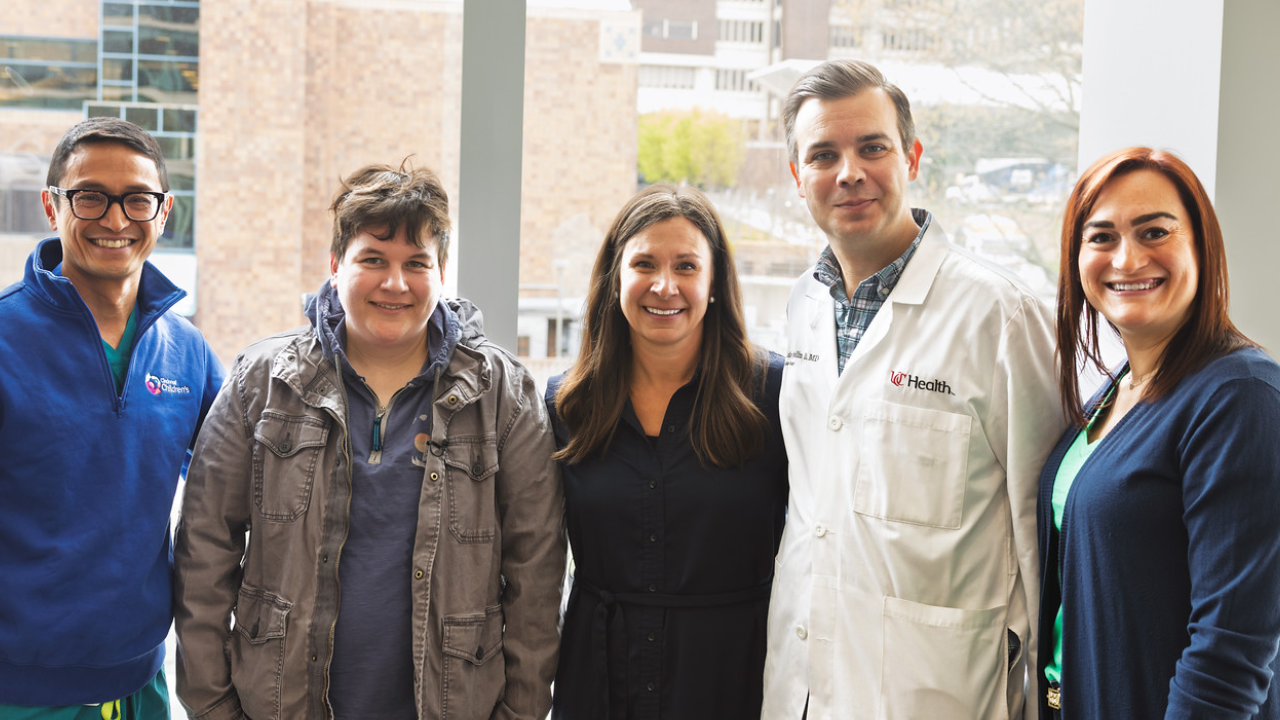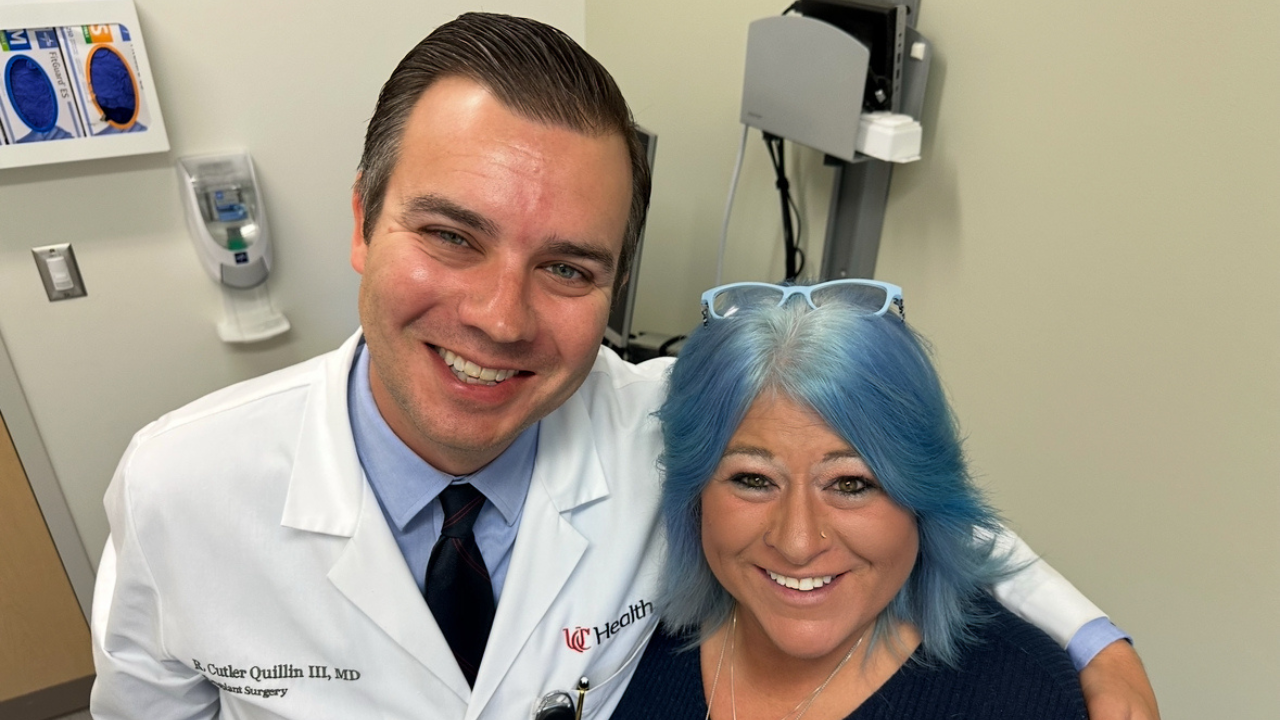UC Health delivers world-class transplant care to patients in Greater Cincinnati and beyond. Our transplant services are grounded in academic and research-based medical excellence, supporting a legacy of outstanding patient care and easy access for all transplant needs.
Our Specialties
Explore Our Transplant Specialties
 Kidney and Pancreas Transplant
Kidney and Pancreas Transplant
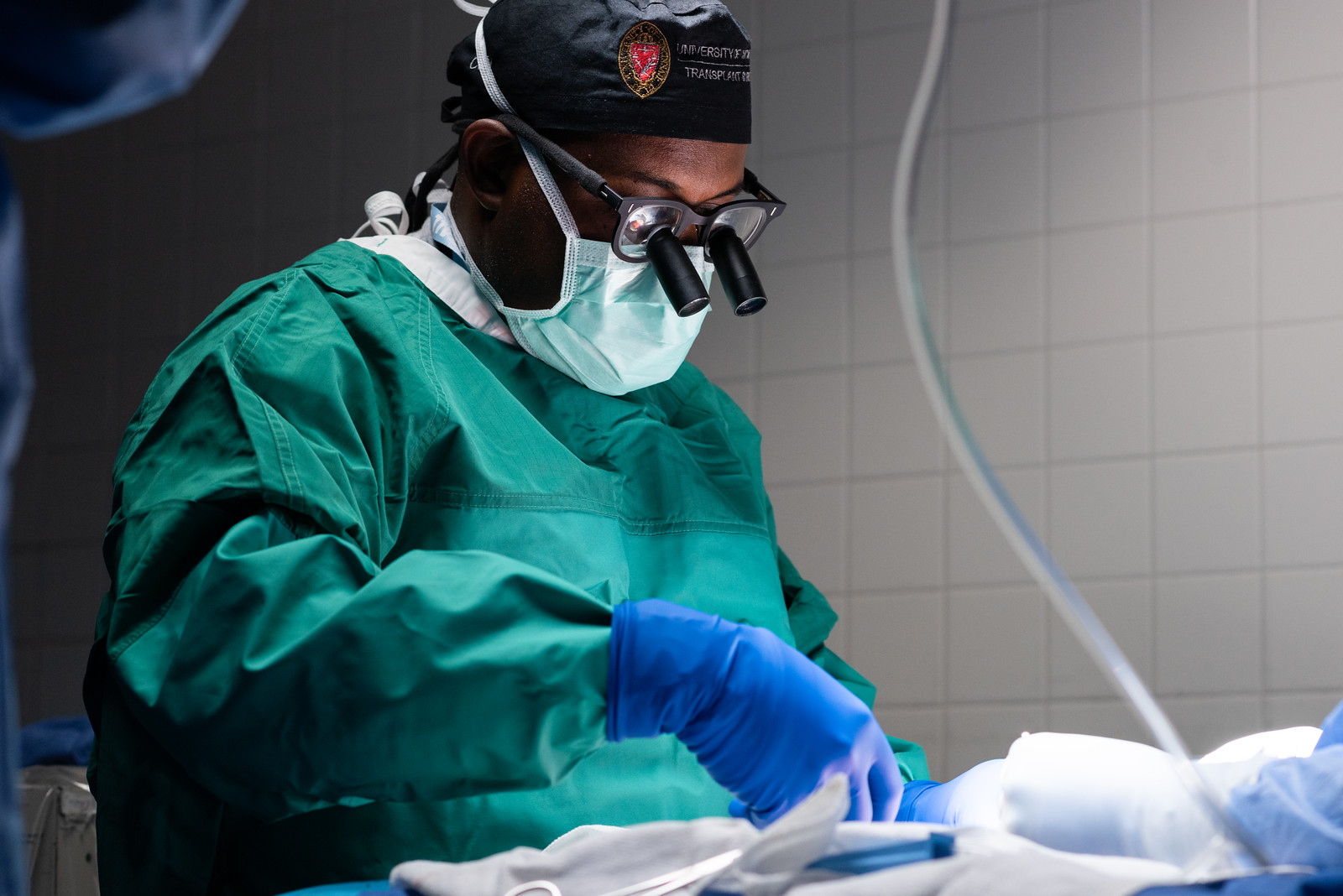 Liver Transplant and Hepatobiliary
Liver Transplant and Hepatobiliary
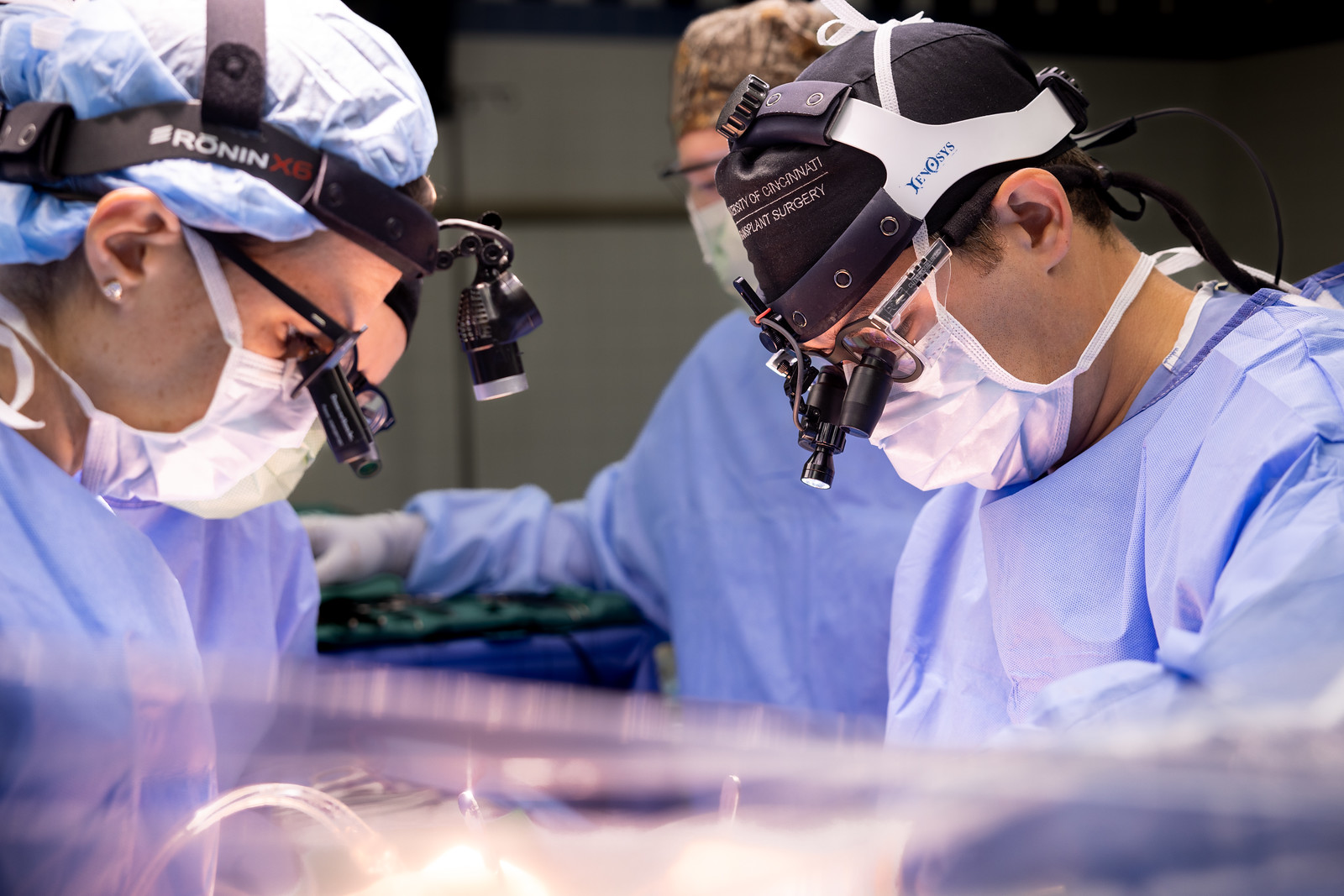 Living Donor Organ Transplantation
Living Donor Organ Transplantation

Authoring breakthroughs
Research and Advancements Making More Transplants Possible for More Patients

Our Unique Approach
Teamwork and Expertise for Every Transplant Journey
Your care team brings together leading surgeons, medical experts and support specialists working as one. Our scale, depth and experience help patients see hope and possibility with every step - right here in Greater Cincinnati.
25+
Transplant providers on your care team
10+
Specialties included in our transplant team
300+
Transplants performed each year
10
Clinics conveniently within 120 miles of Cincinnati

Patient Connection
Jeremy’s Story
Just weeks after their wedding, Hannah Maynard selflessly donated a kidney to her husband, Jeremy, giving him a second chance at life.
How to contribute
Your Generosity Saves Lives
Your generosity supports patients, research and clinical innovation at UC Health. Donations help provide advanced treatments, fund clinical trials and expand patient care for those facing critical liver conditions.
